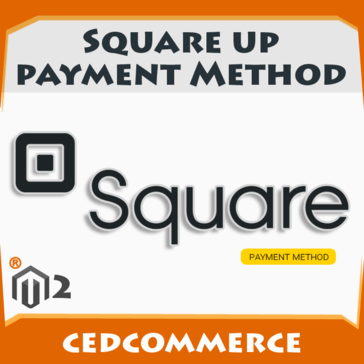*please check with the vendors directly for the latest pricing.
| Name |
Price |
Duration |
 Spreedly
Spreedly
|
$200 - $1500
|
Per month, Per month, Per month, |
 Simpl
Simpl
|
$2.7%+30c - $30
|
Per month, Per month, |
 allpago
allpago
|
$RequestPricing - $RequestPricing
|
|
 EBizCharge
EBizCharge
|
$RequestPricing - $RequestPricing
|
|
 Bolt
Bolt
|
$RequestPricing - $RequestPricing
|
|
 PayLane
PayLane
|
$RequestPricing - $RequestPricing
|
|
 Paytm Business
Paytm Business
|
$837 - $Rs10
|
Per share, |
 Apple Pay
Apple Pay
|
$30 - $30
|
Per month, |
 Paystack
Paystack
|
$1970 - $1970
|
Per month, |
 SquareUp Payment Method
SquareUp Payment Method
|
$RequestPricing - $RequestPricing
|
|
 Ingenico ePayments
Ingenico ePayments
|
$RequestPricing - $RequestPricing
|
|
 PayMart
PayMart
|
$UnabletoOpen - $UnabletoOpen
|
|
 Paymill
Paymill
|
$€19.95 - $€4.95
|
Per month, Per month, |
 Yapstone
Yapstone
|
$9.95 - $14.95
|
Per month, Per month, |
 TRUSTLY
TRUSTLY
|
$RequestPricing - $RequestPricing
|
|
 Wirize
Wirize
|
$10000 - $10000
|
Per month, |
 Zotapay
Zotapay
|
$25 - $30
|
Per month, Per month, |
 Zooz
Zooz
|
$RequestPricing - $RequestPricing
|
|
 Zipmark
Zipmark
|
$2.7%+30c - $30
|
|
 XTRM
XTRM
|
$NotprovidedByWebsiteContactVendor - $NotprovidedByWebsiteContactVendor
|
|
| Name |
Spreedly Features
- Accepted Credit Cards and Debit Cards 100%
- APIs 97%
- API / Integrations 100%
- PCI Regulation Compliance 100%
|
Simpl Features
- Coupons, Discounts, Promotions, and Gift Cards 99%
- Recurring Billing 99%
- Instant Payment 99%
- Accepted Credit Cards and Debit Cards 99%
- ACH Payments and eCheck Processing 99%
- Split Payments 99%
- Real-Time Payments 99%
- Reporting/Dashboards 99%
- User, Role, and Access Management 99%
- Payout Time 95%
- Manual Payment Entry 91%
- Dispute Resolution 99%
- PCI Compliance 99%
- Fraud Protection Tools 99%
- Data Tokenization 99%
- Two-Factor Authentication 99%
- Customization (Fields, Objects, and Layouts) 99%
- APIs 99%
- Accounting Software Integration 99%
- E-Commerce Software Integration 99%
- Performance and Reliability 99%
- Internationalization Currency/Language%
- Internationalization Operating Country%
- API / Integrations 95%
- PCI Regulation Compliance 99%
- Supplemental Technology 99%
|
allpago Features
- Coupons, Discounts, Promotions, and Gift Cards 89%
- Recurring Billing 99%
- Instant Payment 97%
- Accepted Credit Cards and Debit Cards 88%
- ACH Payments and eCheck Processing 97%
- Split Payments 96%
- Real-Time Payments 99%
- Reporting/Dashboards 100%
- User, Role, and Access Management 100%
- Payout Time 99%
- Manual Payment Entry 99%
- Dispute Resolution 99%
- PCI Compliance 100%
- Fraud Protection Tools 100%
- Data Tokenization 90%
- Two-Factor Authentication 97%
- Customization (Fields, Objects, and Layouts) 96%
- APIs 97%
- Accounting Software Integration 100%
- E-Commerce Software Integration 97%
- Performance and Reliability 100%
- Internationalization Currency/Language%
- Internationalization Operating Country%
- API / Integrations 99%
- PCI Regulation Compliance 100%
- Supplemental Technology 99%
|
EBizCharge Features
- Recurring Billing 88%
- Instant Payment 95%
- Accepted Credit Cards and Debit Cards 96%
- Real-Time Payments 97%
- Credit Card Processing 100%
- PCI Compliance 94%
- Fraud Protection Tools 90%
- Data Tokenization 92%
- Two-Factor Authentication 92%
- Customization (Fields, Objects, and Layouts) 85%
- APIs 90%
- Accounting Software Integration 95%
- E-Commerce Software Integration 90%
- Performance and Reliability 98%
- Internationalization Currency/Language%
- API / Integrations 94%
- PCI Regulation Compliance 98%
- Supplemental Technology 92%
|
Bolt Features
- Coupons, Discounts, Promotions, and Gift Cards 87%
- Instant Payment 96%
- Accepted Credit Cards and Debit Cards 98%
- Real-Time Payments 96%
- Fraud Detection 100%
- Alerts 100%
- Real-Time Monitoring 100%
- Templates Mobile E-Commerce%
- Versions Mobile E-Commerce%
- Testing Mobile E-Commerce%
- Multichannel Mobile E-Commerce%
- Transaction Scoring 100%
- Risk Assessment 100%
- Intelligence Reporting 98%
- ID Analytics 98%
- Dashboards Mobile E-Commerce%
- User Behavior Mobile E-Commerce%
- Sales Mobile E-Commerce%
- Branding Mobile E-Commerce%
- Digital Content Mobile E-Commerce%
- PCI Compliance 100%
- Fraud Protection Tools 98%
- Data Tokenization 100%
- Two-Factor Authentication 96%
- Customization (Fields, Objects, and Layouts 91%
- APIs 97%
- E-Commerce Software Integration 94%
- Device Tracking 100%
- Fraud Markers 100%
- Blacklisting 100%
- Bot Mitigation 100%
- Performance and Reliability 100%
- Internationalization Currency/Language%
- Internationalization Operating Country%
- API / Integrations 100%
- PCI Regulation Compliance 100%
- Supplemental Technology 100%
|
PayLane Features
- Coupons, Discounts, Promotions, and Gift Cards 77%
- Recurring Billing 81%
- Instant Payment 90%
- Accepted Credit Cards and Debit Cards 86%
- Real-Time Payments 87%
- Reporting/Dashboards 83%
- User, Role, and Access Management 87%
- Payout Time 90%
- Manual Payment Entry 83%
- Dispute Resolution 87%
- Fraud Protection Tools 87%
- Data Tokenization 83%
- APIs 87%
- Accounting Software Integration 83%
- E-Commerce Software Integration 87%
- Performance and Reliability 83%
- Internationalization Currency/Language%
- Internationalization Operating Country%
- API / Integrations 87%
- PCI Regulation Compliance 83%
|
Paytm Business Features
- Coupons, Discounts, Promotions, and Gift Cards 70%
- Recurring Billing 83%
- Instant Payment 89%
- Accepted Credit Cards and Debit Cards 92%
- ACH Payments and eCheck Processing 80%
- Split Payments 76%
- Real-Time Payments 95%
- Reporting/Dashboards 82%
- User, Role, and Access Management 87%
- Payout Time 86%
- Manual Payment Entry 90%
- Dispute Resolution 87%
- Fraud Protection Tools 81%
- Data Tokenization 87%
- Two-Factor Authentication 90%
- Customization (Fields, Objects, and Layouts) 87%
- APIs 87%
- Accounting Software Integration 83%
- E-Commerce Software Integration 88%
- Performance and Reliability 88%
- Internationalization Currency/Language%
- Internationalization Operating Country%
- API / Integrations 85%
- PCI Regulation Compliance 78%
- Supplemental Technology 88%
|
Apple Pay Features
- Coupons, Discounts, Promotions, and Gift Cards 76%
- Recurring Billing 84%
- Instant Payment 94%
- Accepted Credit Cards and Debit Cards 92%
- ACH Payments and eCheck Processing 89%
- Split Payments 84%
- Real-Time Payments 92%
- Reporting/Dashboards 85%
- User, Role, and Access Management 90%
- Payout Time 88%
- Manual Payment Entry 85%
- Dispute Resolution 88%
- PCI Compliance 93%
- Fraud Protection Tools 94%
- Data Tokenization 95%
- Two-Factor Authentication 96%
- Customization (Fields, Objects, and Layouts) 84%
- APIs 88%
- Accounting Software Integration 92%
- E-Commerce Software Integration 91%
- Performance and Reliability 94%
- Internationalization Currency/Language%
- Internationalization Operating Country%
- API / Integrations 90%
- PCI Regulation Compliance 89%
- Supplemental Technology 89%
|
Paystack Features
- Coupons, Discounts, Promotions, and Gift Cards 99%
- Recurring Billing 99%
- Instant Payment 99%
- Accepted Credit Cards and Debit Cards 99%
- ACH Payments and eCheck Processing 99%
- Split Payments 99%
- Real-Time Payments 99%
- Reporting/Dashboards 99%
- User, Role, and Access Management 99%
- Payout Time 95%
- Manual Payment Entry 91%
- Dispute Resolution 99%
- PCI Compliance 99%
- Fraud Protection Tools 99%
- Data Tokenization 99%
- Two-Factor Authentication 99%
- Customization (Fields, Objects, and Layouts) 99%
- APIs 99%
- Accounting Software Integration 99%
- E-Commerce Software Integration 99%
- Performance and Reliability 99%
- Internationalization Currency/Language%
- Internationalization Operating Country%
- API / Integrations 95%
- PCI Regulation Compliance 99%
- Supplemental Technology 99%
|
SquareUp Payment Method Features
- Coupons, Discounts, Promotions, and Gift Cards 85%
- Instant Payment 86%
- Accepted Credit Cards and Debit Cards 93%
- Real-Time Payments 91%
- Reporting/Dashboards 93%
- User, Role, and Access Management 86%
- Fraud Protection Tools 80%
- Data Tokenization 64%
- Customization (Fields, Objects, and Layouts) 95%
- E-Commerce Software Integration 89%
- Performance and Reliability 90%
- Internationalization Operating Country%
|
Ingenico ePayments Features
- Coupons, Discounts, Promotions, and Gift Cards 99%
- Recurring Billing 99%
- Instant Payment 99%
- Accepted Credit Cards and Debit Cards 99%
- ACH Payments and eCheck Processing 99%
- Split Payments 99%
- Real-Time Payments 99%
- Reporting/Dashboards 99%
- User, Role, and Access Management 99%
- Payout Time 95%
- Manual Payment Entry 91%
- Dispute Resolution 99%
- PCI Compliance 99%
- Fraud Protection Tools 99%
- Data Tokenization 99%
- Two-Factor Authentication 99%
- Customization (Fields, Objects, and Layouts) 99%
- APIs 99%
- Accounting Software Integration 99%
- E-Commerce Software Integration 99%
- Performance and Reliability 99%
- Internationalization Currency/Language%
- Internationalization Operating Country%
- API / Integrations 95%
- PCI Regulation Compliance 99%
- Supplemental Technology 99%
|
PayMart Features
- Coupons, Discounts, Promotions, and Gift Cards 99%
- Recurring Billing 99%
- Instant Payment 99%
- Accepted Credit Cards and Debit Cards 99%
- ACH Payments and eCheck Processing 99%
- Split Payments 99%
- Real-Time Payments 99%
- Reporting/Dashboards 99%
- User, Role, and Access Management 99%
- Payout Time 95%
- Manual Payment Entry 91%
- Dispute Resolution 99%
- PCI Compliance 99%
- Fraud Protection Tools 99%
- Data Tokenization 99%
- Two-Factor Authentication 99%
- Customization (Fields, Objects, and Layouts) 99%
- APIs 99%
- Accounting Software Integration 99%
- E-Commerce Software Integration 99%
- Performance and Reliability 99%
- Internationalization Currency/Language%
- Internationalization Operating Country%
- API / Integrations 95%
- PCI Regulation Compliance 99%
- Supplemental Technology 99%
|
Paymill Features
- Coupons, Discounts, Promotions, and Gift Cards 99%
- Recurring Billing 99%
- Instant Payment 99%
- Accepted Credit Cards and Debit Cards 99%
- ACH Payments and eCheck Processing 99%
- Split Payments 99%
- Real-Time Payments 99%
- Reporting/Dashboards 99%
- User, Role, and Access Management 99%
- Payout Time 95%
- Manual Payment Entry 91%
- Dispute Resolution 99%
- PCI Compliance 99%
- Fraud Protection Tools 99%
- Data Tokenization 99%
- Two-Factor Authentication 99%
- Customization (Fields, Objects, and Layouts) 99%
- APIs 99%
- Accounting Software Integration 99%
- E-Commerce Software Integration 99%
- Performance and Reliability 99%
- Internationalization Currency/Language%
- Internationalization Operating Country%
- API / Integrations 95%
- PCI Regulation Compliance 99%
- Supplemental Technology 99%
|
Yapstone Features
- Coupons, Discounts, Promotions, and Gift Cards 99%
- Recurring Billing 99%
- Instant Payment 99%
- Accepted Credit Cards and Debit Cards 99%
- ACH Payments and eCheck Processing 99%
- Split Payments 99%
- Real-Time Payments 99%
- Reporting/Dashboards 99%
- User, Role, and Access Management 99%
- Payout Time 95%
- Manual Payment Entry 91%
- Dispute Resolution 99%
- PCI Compliance 99%
- Fraud Protection Tools 99%
- Data Tokenization 99%
- Two-Factor Authentication 99%
- Customization (Fields, Objects, and Layouts) 99%
- APIs 99%
- Accounting Software Integration 99%
- E-Commerce Software Integration 99%
- Performance and Reliability 99%
- Internationalization Currency/Language%
- Internationalization Operating Country%
- API / Integrations 95%
- PCI Regulation Compliance 99%
- Supplemental Technology 99%
|
TRUSTLY Features
- Coupons, Discounts, Promotions, and Gift Cards 99%
- Recurring Billing 99%
- Instant Payment 99%
- Accepted Credit Cards and Debit Cards 99%
- ACH Payments and eCheck Processing 99%
- Split Payments 99%
- Real-Time Payments 99%
- Reporting/Dashboards 99%
- User, Role, and Access Management 99%
- Payout Time 95%
- Manual Payment Entry 91%
- Dispute Resolution 99%
- PCI Compliance 99%
- Fraud Protection Tools 99%
- Data Tokenization 99%
- Two-Factor Authentication 99%
- Customization (Fields, Objects, and Layouts) 99%
- APIs 99%
- Accounting Software Integration 99%
- E-Commerce Software Integration 99%
- Performance and Reliability 99%
- Internationalization Currency/Language%
- Internationalization Operating Country%
- API / Integrations 95%
- PCI Regulation Compliance 99%
- Supplemental Technology 99%
|
Wirize Features
- Coupons, Discounts, Promotions, and Gift Cards 88%
- Recurring Billing 88%
- Instant Payment 88%
- Accepted Credit Cards and Debit Cards 88%
- ACH Payments and eCheck Processing 88%
- Split Payments 88%
- Real-Time Payments 88%
- Reporting/Dashboards 88%
- User, Role, and Access Management 88%
- Payout Time 85%
- Manual Payment Entry 81%
- Dispute Resolution 88%
- PCI Compliance 88%
- Fraud Protection Tools 88%
- Data Tokenization 88%
- Two-Factor Authentication 88%
- Customization (Fields, Objects, and Layouts) 88%
- APIs 88%
- Accounting Software Integration 88%
- E-Commerce Software Integration 88%
- Performance and Reliability 88%
- Internationalization Currency/Language%
- Internationalization Operating Country%
- API / Integrations 85%
- PCI Regulation Compliance 88%
- Supplemental Technology 88%
|
Zotapay Features
- Coupons, Discounts, Promotions, and Gift Cards 88%
- Recurring Billing 88%
- Instant Payment 88%
- Accepted Credit Cards and Debit Cards 88%
- ACH Payments and eCheck Processing 88%
- Split Payments 88%
- Real-Time Payments 88%
- Reporting/Dashboards 88%
- User, Role, and Access Management 88%
- Payout Time 85%
- Manual Payment Entry 81%
- Dispute Resolution 88%
- PCI Compliance 88%
- Fraud Protection Tools 88%
- Data Tokenization 88%
- Two-Factor Authentication 88%
- Customization (Fields, Objects, and Layouts) 88%
- APIs 88%
- Accounting Software Integration 88%
- E-Commerce Software Integration 88%
- Performance and Reliability 88%
- Internationalization Currency/Language%
- Internationalization Operating Country%
- API / Integrations 85%
- PCI Regulation Compliance 88%
- Supplemental Technology 88%
|
Zooz Features
- Coupons, Discounts, Promotions, and Gift Cards 88%
- Recurring Billing 88%
- Instant Payment 88%
- Accepted Credit Cards and Debit Cards 88%
- ACH Payments and eCheck Processing 88%
- Split Payments 88%
- Real-Time Payments 88%
- Reporting/Dashboards 88%
- User, Role, and Access Management 88%
- Payout Time 85%
- Manual Payment Entry 81%
- Dispute Resolution 88%
- PCI Compliance 88%
- Fraud Protection Tools 88%
- Data Tokenization 88%
- Two-Factor Authentication 88%
- Customization (Fields, Objects, and Layouts) 88%
- APIs 88%
- Accounting Software Integration 88%
- E-Commerce Software Integration 88%
- Performance and Reliability 88%
- Internationalization Currency/Language%
- Internationalization Operating Country%
- API / Integrations 85%
- PCI Regulation Compliance 88%
- Supplemental Technology 88%
|
Zipmark Features
- Coupons, Discounts, Promotions, and Gift Cards 88%
- Recurring Billing 88%
- Instant Payment 88%
- Accepted Credit Cards and Debit Cards 88%
- ACH Payments and eCheck Processing 88%
- Split Payments 88%
- Real-Time Payments 88%
- Reporting/Dashboards 88%
- User, Role, and Access Management 88%
- Payout Time 85%
- Manual Payment Entry 81%
- Dispute Resolution 88%
- PCI Compliance 88%
- Fraud Protection Tools 88%
- Data Tokenization 88%
- Two-Factor Authentication 88%
- Customization (Fields, Objects, and Layouts) 88%
- APIs 88%
- Accounting Software Integration 88%
- E-Commerce Software Integration 88%
- Performance and Reliability 88%
- Internationalization Currency/Language%
- Internationalization Operating Country%
- API / Integrations 85%
- PCI Regulation Compliance 88%
- Supplemental Technology 88%
|
XTRM Features
- Coupons, Discounts, Promotions, and Gift Cards 88%
- Recurring Billing 88%
- Instant Payment 88%
- Accepted Credit Cards and Debit Cards 88%
- ACH Payments and eCheck Processing 88%
- Split Payments 88%
- Real-Time Payments 88%
- Reporting/Dashboards 88%
- User, Role, and Access Management 88%
- Payout Time 85%
- Manual Payment Entry 81%
- Dispute Resolution 88%
- PCI Compliance 88%
- Fraud Protection Tools 88%
- Data Tokenization 88%
- Two-Factor Authentication 88%
- Customization (Fields, Objects, and Layouts) 88%
- APIs 88%
- Accounting Software Integration 88%
- E-Commerce Software Integration 88%
- Performance and Reliability 88%
- Internationalization Currency/Language%
- Internationalization Operating Country%
- API / Integrations 85%
- PCI Regulation Compliance 88%
- Supplemental Technology 88%
|
Customer service is very important when using a payment gateway like Spreedly.
When investing in and dealing with a payment gateway for your business, timely customer support is essential.
Customer service includes assistance in installation, training, troubleshooting, upgrading, and cancellation of a product or service.
Your payment-gateway solution should offer customer support that includes Phone answering services, Live chat support and Email customer service support.
Ensure that the payment gateway solution you decide upon provides the exact range of tools your organisation needs.
Check PAYMENT GATEWAY is a good fit for your business.
An important factor for business owners to consider when looking for a Payment gateway like Spreedly is the support and educational resources the Payment gateway platform can offer.
Choose a payment gateway that is considered an industry-leader with a well tested and well known software platform.
If you are thinking of using the Spreedly platform you will need to know that Spreedly is payment gateway that you can rely on.

 Spreedly
Spreedly
 Simpl
Simpl
 allpago
allpago
 EBizCharge
EBizCharge
 Bolt
Bolt
 PayLane
PayLane
 Paytm Business
Paytm Business
 Apple Pay
Apple Pay
 Paystack
Paystack
 SquareUp Payment Method
SquareUp Payment Method
 Ingenico ePayments
Ingenico ePayments
 PayMart
PayMart
 Paymill
Paymill
 Yapstone
Yapstone
 TRUSTLY
TRUSTLY
 Wirize
Wirize
 Zotapay
Zotapay
 Zooz
Zooz
 Zipmark
Zipmark
 XTRM
XTRM
